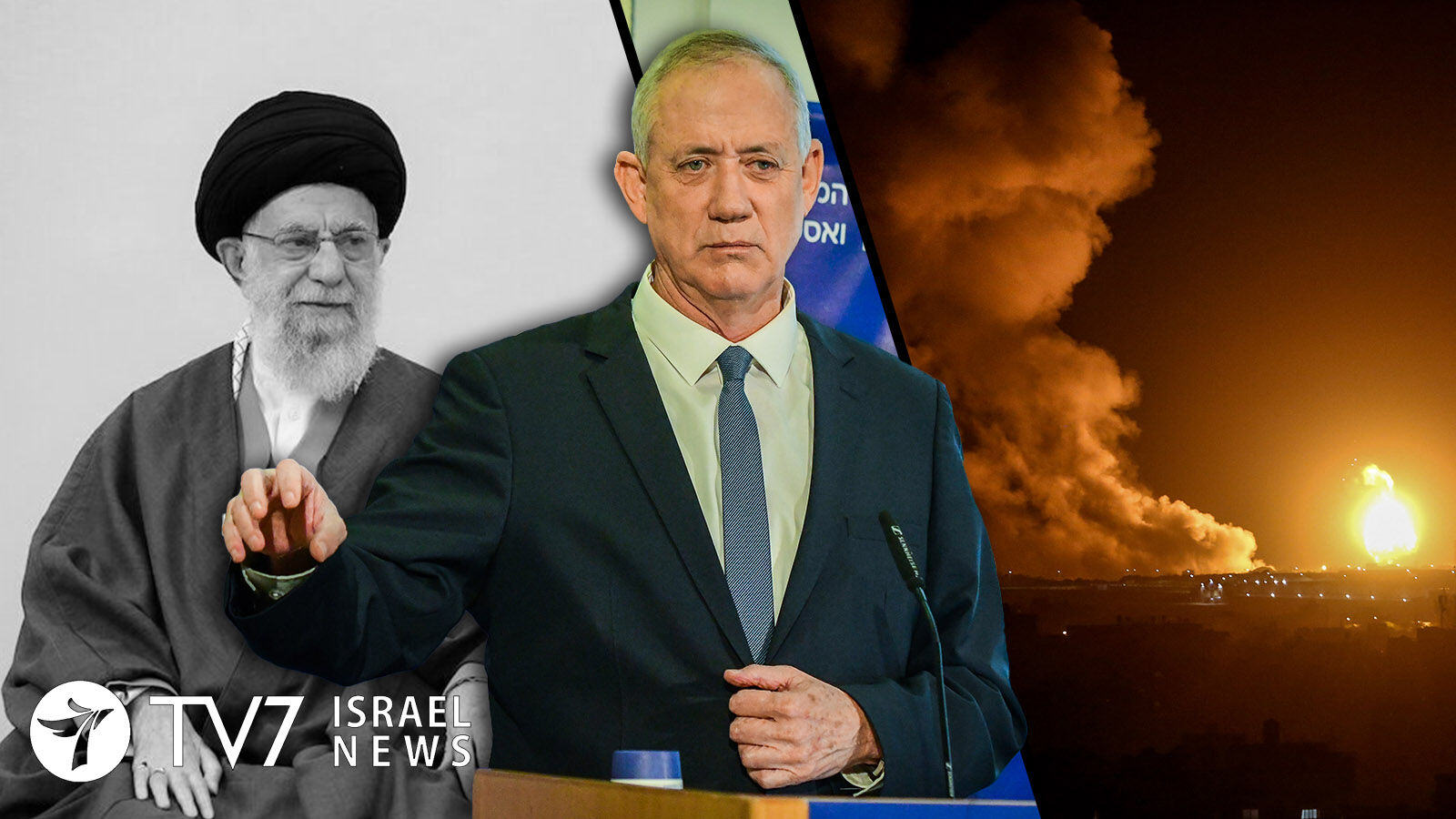One day before his trip to the United States, Defense Minister Benny Gantz discussed the current global reality within the context of the Iranian threat and additional challenges faced by the State of Israel.
By Erin Viner
“Iran continues to accumulate irreversible knowledge and experience in the development, research, production and operation of advanced centrifuges,” asserted Lt. Gen. Gantz in an address at the “A New Global Order” conference at the Reichman University Institute for Policy and Strategy today.
He specified that the Islamic Republic “stands just a few weeks away from accumulating fissile material that will be sufficient for a first bomb, holds 60 kg of enriched material at 60%, produces metallic uranium at the enrichment level of 20% and prevents the IAEA [International Atomic Energy Agency] from accessing its facilities. Even today, Iran is making an effort to complete the production and installation of 1,000 advanced IR6 centrifuges at its nuclear facilities, including a new facility being built at an underground site near Natanz.”
Saying that “one of the lessons of the war in Ukraine is that it is right to exercise economic, political and, if necessary, military force as early as possible, and perhaps in this way to prevent wars,” Gantz said, “The same is true of the situation we are in with Iran. The price of a possible future war can be prevented or reduced by operating a multidimensional pressure campaign, led by the international community.”
“Today, the prices for tackling the Iranian challenge on the global and regional levels are higher than they were a year ago and lower than they will be within a year,” stressed the Israeli Defense Minister.
Israel, which the Islamic Republic refuses to recognize, says it will not accept Iran becoming “a nuclear threshold state.” Israeli leaders have repeatedly warned that Jerusalem will not be bound by any nuclear deal with Iran and could eventually take unilateral action against its nuclear sites.
Turning to the Islamic Republic’s aggression in the region, he asserted that “Iranian proxies are attacking oil reserves, airports and civilian facilities,” including its own attacks via its Islamic Revolutionary Guards Corps (IRGC)] Quds Force.
Iran “is developing operational systems throughout the region, equipped with accurate capabilities including cruise missiles, surface-to-surface missiles and UAVs, capable of reaching thousands of kilometers. The quantity of strategic weapons in the hands of Iranian proxies has increased significantly in the last year: in Iraq there are hundreds of weapons, in Yemen the number has also increased, and the Houthis hold dozens of weapons,” he charged.
As just one example, Jerusalem’s top defense chief said that the purpose of the IRGC’s recent launching of two drones with attached parachutes from Iranian territory – as it has “several times in the past” – exposed intent to deliver weapons to terrorist organizations in Gaza, Judea and Samaria. The attempt failed when the UAVs were intercepted in Iraq.
After also pointing to Tehran’s continued attempts to “transfer and produce accurate weapons in Syria” as well, Minister Gantz vowed that, “Israel will continue to thwart these efforts and face any threat to its citizens and the region.”
Iranian leaders have frequently threatened to annihilate the Jewish State.
Moving to the security situation in Israel, the Defense Minister said that the current wave of Arab terror attacks “take advantage of the sensitive situation in Jerusalem and the Temple Mount, where Israel maintains freedom of worship. These attacks are connected to each other as they are based on incitement that is spread by terror organizations in the region. This incitement is not sufficiently condemned by world and regional leaders, who should also prioritize stability in the region.”
Gantz pledged that Israel “will continue the political effort to strengthen our relations with our neighbors in the region and our partners around the world. This while being willing to make efforts to shrink the conflict and strive for political arrangements between us and the Palestinians, which, even if they seem distant, are a strategic need.”
Regarding Russia’s invasion of Ukraine, Gantz said “Israel’s policy is in the right position both in terms of values and strategy. We have the right to provide extensive humanitarian assistance, and to support Ukraine with additional non-offensive equipment, in a manner that is in line with Israel’s broad operational considerations, which are also important to greater regional stability.” He added that efforts by Israeli Prime Minister Naftali Bennett to mediate a resolution to the conflict are also critical.
